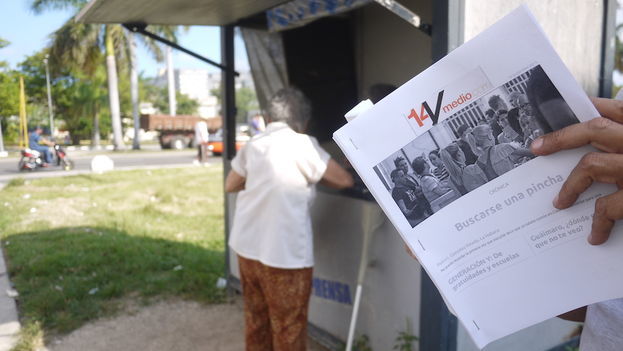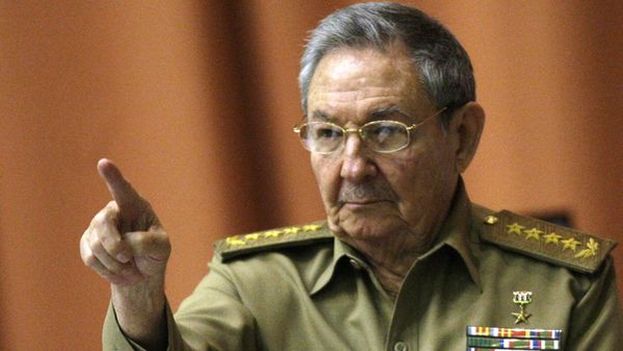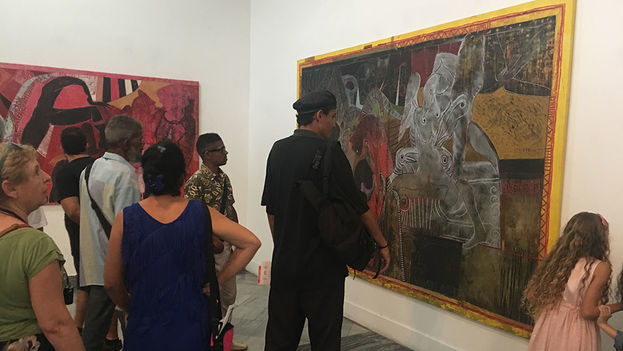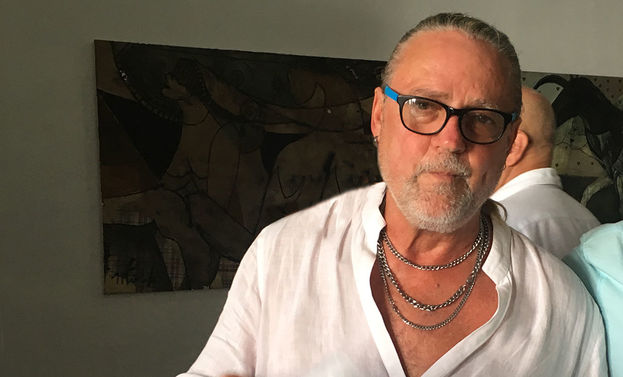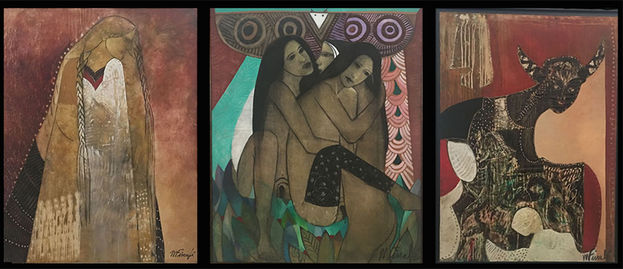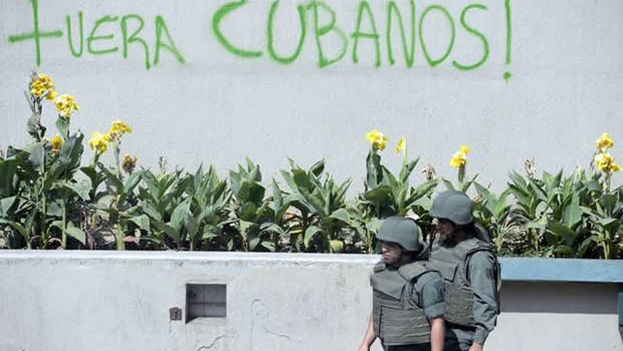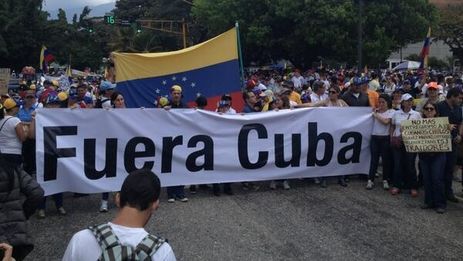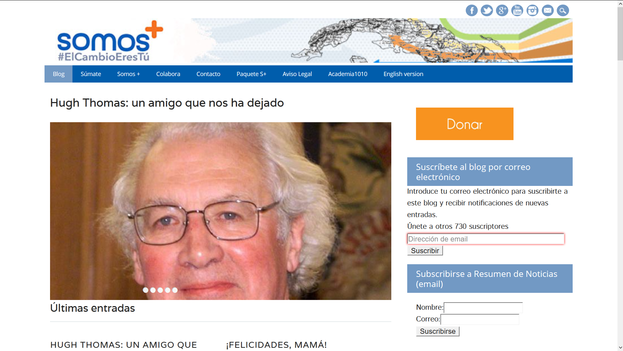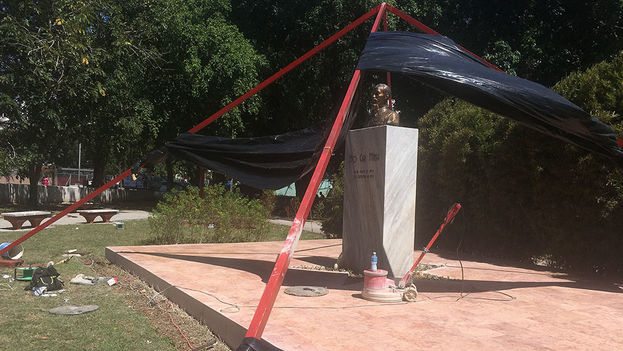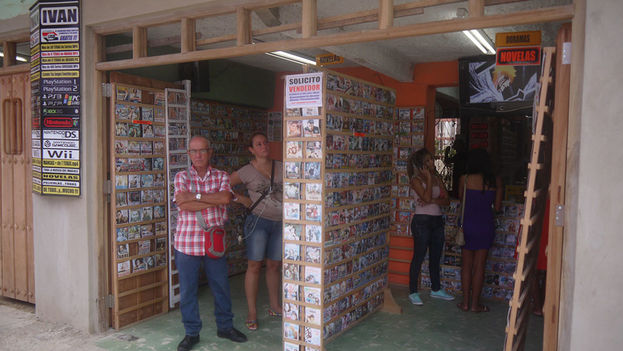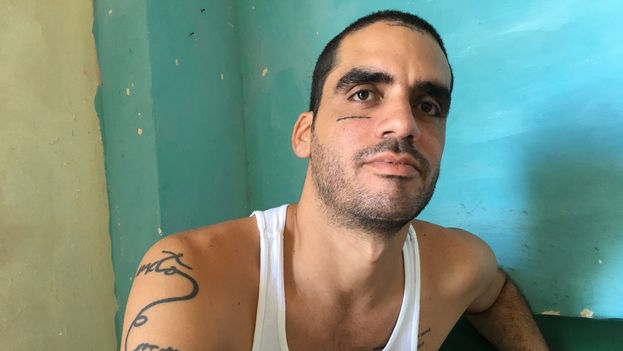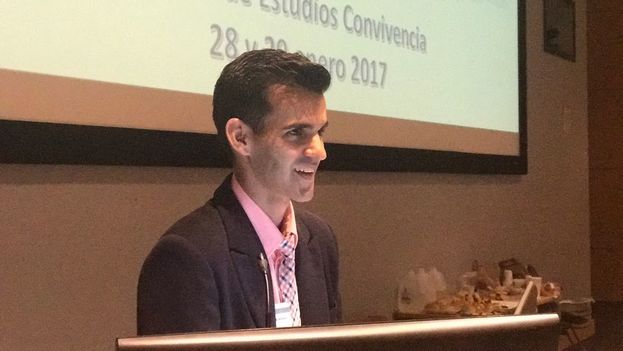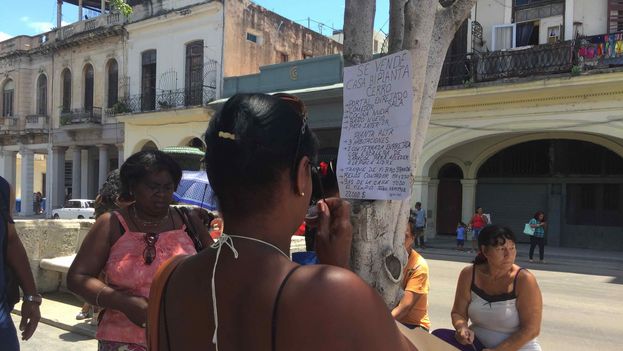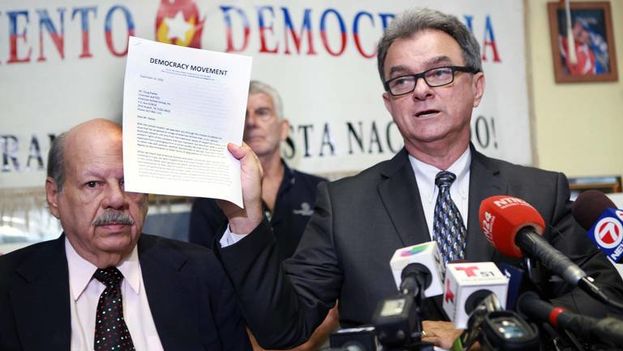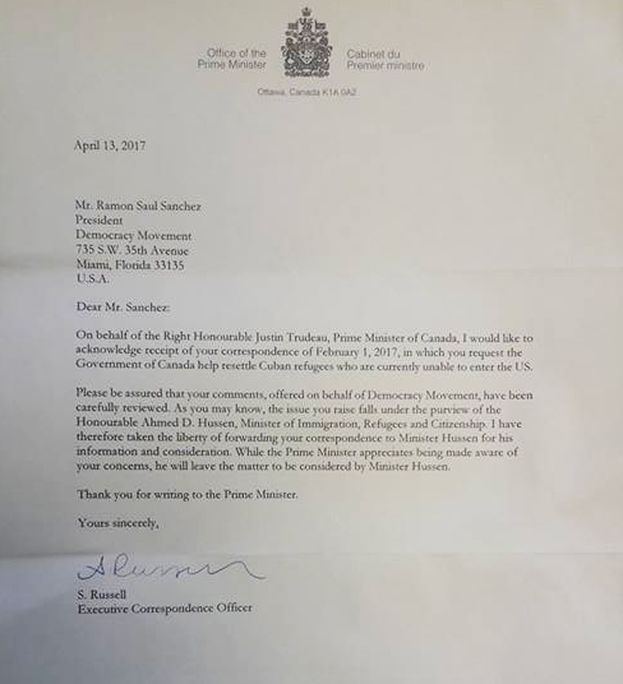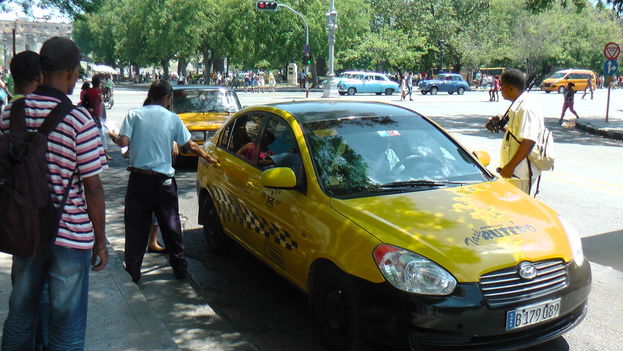
![]() 14ymedio, Havana, 17 May 2017 — In the midst of the morning hustle and bustle, residents of Havana are trying to reach their destinations on time, a challenge because of the inefficient public transport and the sky high prices charged by the private operators of fixed-route shared-ride taxi services. On Monday a new service, “Rutero taxis,” was added to the transportation offerings, a cooperative that intends to regulate the high costs of moving around Cuba’s largest city.
14ymedio, Havana, 17 May 2017 — In the midst of the morning hustle and bustle, residents of Havana are trying to reach their destinations on time, a challenge because of the inefficient public transport and the sky high prices charged by the private operators of fixed-route shared-ride taxi services. On Monday a new service, “Rutero taxis,” was added to the transportation offerings, a cooperative that intends to regulate the high costs of moving around Cuba’s largest city.
With a total of 60 Lada and Hyundai cars, in addition to five buses, Cooperative Number 2 covers the route between La Lisa and the Fraternity Park. For years, this route has been the fiefdom of the boteros – or boatmen, as private taxi drivers are called – with their dilapidated but efficient vehicles. In the private taxis, the complete trip costs 20 Cuban pesos, the equivalent of one day’s pay, while individual sections of the trip cost 10 Cuban pesos, reduced rates recently imposed by the government. continue reading
The users perceive the new structure, under cooperative management, as a response the high fares charged by private operators, rates that the official media has called an “abuse on the population.” The Rutero drivers charge 15 Cuban pesos for the full route and 5 for intermediate sections.
The Rutero drivers charge 15 Cuban pesos for the full route and 5 for intermediate sections compared to 20 and 10 charged by the private drivers
The conflict between the State and the self-employed drivers has experienced tense moments in recent months. Last February, the capital authorities imposed flat rates on private taxi drivers’ journeys. The decision was a brake on the law of supply and demand that has governed the private transportation of passengers since it was authorized in the mid-1990s.
The boteros responded by refusing to serve intermediate stops and carrying only passengers who made the complete trip. Although they lack an independent union, something prohibited by law, they closed ranks and decreased the number of customers they served, to pressure local authorities to withdraw the controls.
The result was an increase in the waiting time for transport and the overwhelming of the bus stops by the avalanche of customers who could no longer travel in the private fixed-route shared taxis, called almendrónes after the almond-shape of the classic American cars commonly used in the service. For weeks, Habaneros have felt as if the most difficult days of the Special Period of the 90’s were coming back.
Now the taxi drivers are trying to alleviate that situation, with a management structure halfway between private and state.
As of January there were 397 private cooperatives on the island, active in food, personal and technical services. The state has promoted this kind of economic management since 2012, but is still in the experimental phase.
“This isn’t fair,” comments Rafael Vidal, a private driver who does not look favorably on the new service. “Those who drive these cars do not have to worry about breakdowns or getting parts, because they have a workshop with all the spare parts and several mechanics at their disposal,” protests the driver.
For Vidal, “the competition is unfair” because “the drivers do not pay for the fuel, and although I have no evidence, I can assure you that the traffic police will not come down on them like they do us”
For Vidal, “the competition is unfair” because “the drivers do not pay for the fuel, and although I have no evidence, I can assure you that the traffic police will not come down on them like they do us.” One of the most repeated complaints among private drivers is the harassment of inspectors and police officers, sometimes in the form of extortion with demands for money.
Sitting at the wheel of one of the yellow cars with a black roof that the new cooperative operates, Reinier is pleased to be part of the initiative. Previously he rendered his services through the state-owned company Cubataxi and confirmed that getting fuel is no longer a problem in his new job. “My Lada is the only one with a new engine and that is why it uses oil. Yesterday I consumed 18 liters in seven roundtrips,” he says.
The cuts in the oil supply to the state sector keeps the drivers on edge. Of the more than 100,000 barrels of oil a day that Cuba received during the years when Hugo Chavez ruled Venezuela, the supply dropped to 87,000 in 2016, and now does not exceed 55,000, according to several analysts.
The drop in fuel imports has affected the informal gasoline market and raised prices, one of the reasons that led the private drivers to increase their fares.
Reinier believes that it is too early to “assert that there are advantages” with the Rutero taxis, or whether they really relieve the transport situation in the capital. He confirms that he must give all his proceeds to the cooperative daily. “If I deposit 1,050 Cuban pesos every day, I am guaranteed a monthly salary of 800 CUP.” If he exceeds that amount he gets a bonus, and if he falls short there is a deduction.
This Monday, several of the Rutero drivers were not able to meet the standard, according to Reinier. “I did it, but I have tremendous pain in my back from the nine hours I was driving,” he explains to 14ymedio.
The new service covers the route of the P-14 bus from six in the morning until eight at night. The first section starts on 272nd Street in La Lisa municipality and runs to the beginning of Marianao; the second concludes at Avenida 26 in the Plaza district, and the last one ends at Fraternity Park.
Another driver, who preferred not to give his name, explained that it is not very clear what happens when someone rides the last 100 meters of the first leg and gets off in the first block of the second. “You could be charged 10 CUP because you crossed the border, but that is up to the driver’s consideration,” he speculates.
The Rutero drivers have a significant limitation: they can only accept Cuban pesos, the national currency, in a country where the convertible peso has become the strong currency that actually runs the economy. The drivers justify the decision because “the cooperative keeps the accounts in CUP to measure the completion of the daily minimum.”
“Betancourt, the president of the cooperative, says that we can not become a Cadeca (currency exchange),” Reinier says, laughing.
According to several drivers interviewed, for now the contract is in force for three months and many expect that “when they adjust it” they will lower the daily quota
According to several drivers interviewed, for now the contract is in force for three months and many expect that “when they adjust it” they will lower the daily quota. There is a sense among them of being part of an experiment open to modifications at any time.
The outsides of the cars are painted with the identification of the cooperative, and inside the cars there is passenger information about their rights and established prices. In addition, the telephone number 18820 is displayed for complaints and claims.
Customers agree that there should be no illusions. “It would be a miracle if it lasts for a year,” says a young woman to an official journalist who, at the stop at Fraternity Park, put a microphone through the window to survey the passengers.
A woman seated next to her limits herself to approval of the new prices. “Comparing it with the private taxis it is better, but it is still expensive. A few years ago, when the taxis had a meter, you could travel through Havana for 5 pesos and for 15 pesos you could travel to another province,” she concludes.


